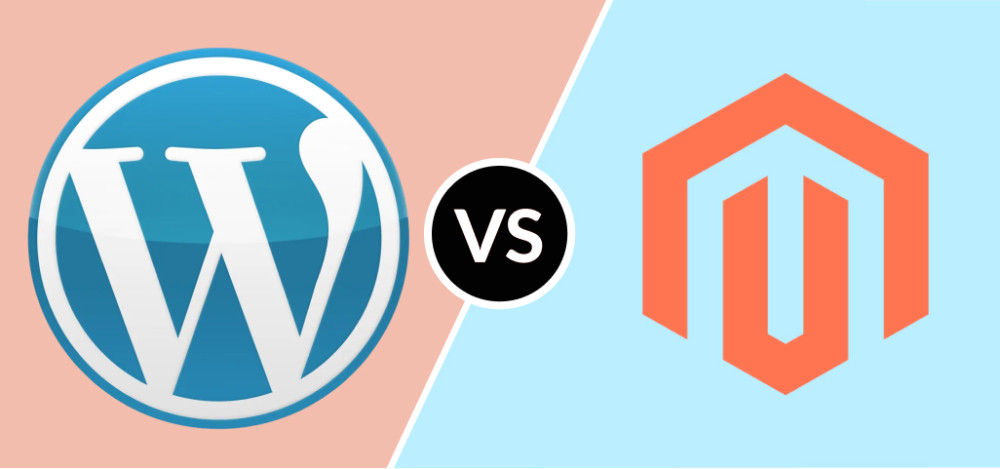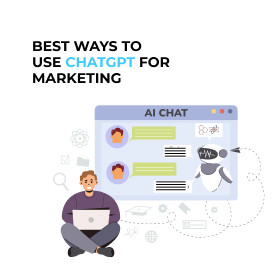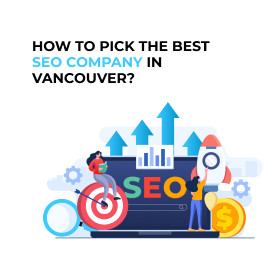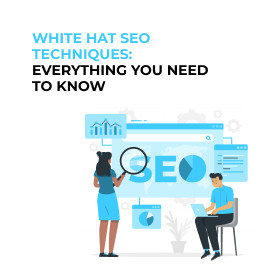
In this digital world, choosing the right platform is crucial for attaining long-term business goals. Both platforms, Magento and WordPress, have a wide range of features, functions, and tools to help businesses and startups grow online. But when confusion arises about picking one, you may find yourself stuck at the crossroads.
Many businesses that need a website find both a viable option because they believe that mostly their features overlap. But it is not the case in reality. So, today, let’s discuss Magento vs WordPress: which is best for your business? This will help you in making informed decisions!
What is Magento?
Magento is an open-source PHP-based ecommerce platform. It is an ecommerce specific platform because it is built to support online selling. Owned by Adobe, Magento provides robust and specialized features for ecommerce experiences. Its open-source nature enables desired customization and integration with third-party tools. This platform supports scalability for all businesses, whether they be startups or large enterprises.
Magento web development is available in both free and paid versions. This offers flexibility to businesses to choose according to their requirements. If you need professional support for establishing an estore on this platform, you should reach out to a Magento development company around you.
What is WordPress?
WordPress is an open-source, free content management system. This allows users to create and manage websites without the need for extensive knowledge. As an easy-to-use platform, it has gained a lot of popularity globally. Furthermore, its capabilities can be extended by installing themes and managing plugins. You can create a website on this platform without much expert knowledge, but if you are looking to build a complex website, then you can contact a WordPress development company.
However, it is not inherently an ecommerce specific platform, but you can develop fully functional stores with WordPress development through ecommerce plugins. The most extensively used plugin for this purpose is WooCommerce. The platform’s user-friendly backend allows users to upload and edit the website’s content, ranging from an expert to a person with no coding experience.
Difference Between Magento vs WordPress
It is a common trope for businesses to find it difficult to choose the one between Magento and WordPress. Both platforms are designed to cater to different business needs and serve distinct purposes. So, it's crucial to learn the difference between Magento and WordPress so you can assess which one you need for your business. The following are the factors to differentiate Magento and WordPress:
1) Pricing Plans
Both Magento and WordPress are open-source platforms. So there is no platform fee for either of them. But if you want extra benefits like hosting, website maintenance, and more, then you need paid subscriptions.
Magento offers two pricing models. The open-source version is free to use for everyone. However, you will need to install and host it on the web server. This will incur some costs of around $50 to $500 per month. The other version is Adobe Commerce, which is paid. The overall costs of Magento development depend on the size of your store and the traffic.
WordPress has three editions: WordPress.org, WordPress.com, and WordPress VIP. The WordPress.org version is free and self-hosted. The hosting can cost around $5 to $500 per month. WordPress.com is a SaaS version that is available in tiered pricing. Each offers a different level of features and monetization options. The higher the tier plan, the more advanced level features and functionality you will get. WordPress VIP is a custom subscription-based model that can cost around $25000 per year. The prices may go higher on the basis of your requirements.
2) Hosting
Magento and WordPress development both work very differently when it comes to hosting. With Magento development, you get the choice of whether to go with shared hosting or VPS hosting. In these options, you get to choose between unmanaged hosting and managed providers. If you choose unmanaged hosting providers, it means you are only renting the server. And the rest you have to manage on your own. On the other side, with managed Magento hosting, you already get a Magento-ready environment.
WordPress development provides a lot easier hosting. It involves a lightweight codebase and fewer server resources. The best part is that you get one-click installation tools from the hosting providers. This makes it even easier to host and maintain without spending much. But it doesn't include server security, technical maintenance, and optimisation. To handle these tasks efficiently, you need to partner with a freelancer or a WordPress web development company.
3) SEO Strategy
SEO is crucial for every online business and startup. Magento development provides centric ecommerce SEO features. It enables you to create custom sitemaps and URLs. You get the integrated ecommerce SEO features directly within the platform. This helps to handle product-heavy stores. By leveraging the features, you can create XML sitemaps, manage meta descriptions, and generate custom URLs. Magento offers built-in canonical tags. It helps in preventing duplicate content issues.
WordPress is a general-purpose CMS. It doesn’t focus only on ecommerce SEO. But it still offers plenty of SEO features. WordPress development has plugins like Yoast and Rank Math. These plugins make it super easy to optimize titles, descriptions, keywords, and others. WordPress, being a blogging powerhouse, naturally supports frequent content updates, which is an essential ranking factor.
4) Variety of Themes
In terms of themes, both Magento and WordPress give tough competition to each other. Magento themes are heavily focused on ecommerce. They are built to help with large catalogues and complex store setups. With Magento, you get around a few hundred themes. These are available in the Magento marketplace and from third-party providers. It allows for advanced customisation but usually requires a Magento development company support.
WordPress has one of the largest theme ecosystems. This is because WordPress is meant for everyone, from bloggers to businesses. WordPress offers you thousands of free wordpress themes, and there are more if you go for premium. WordPress themes are relatively easy to customize.
5) Plugins and Extensions
When talking about adding extra functionalities, both platforms give you plenty of options. Magento has a dedicated marketplace that facilitates thousands of extensions. The extensions are built to manage ecommerce-specific requirements. With Magento development, you can scale your store without starting from scratch. However, most of the Magento extensions are paid, and you may require expert support from a Magento web development company to set them up properly.
WordPress development offers an enormous plugin ecosystem. It has more than 60,000 plugins that offer customization the way you want. WooCommerce alone has a huge collection of plugins to transform a simple website into a well-organized ecommerce store. WordPress plugins are much easier to integrate and manage compared to Magento extensions.
Which One to Pick Between Magento and WordPress?
Today, we assessed the difference between Magento vs WordPress on the basis of diverse business needs. Now, which one to pick between Magento and WordPress depends on your specific business goals.
If you envision a typical ecommerce website, then Magento is an excellent choice. But always keep in mind that WordPress is not specifically for blogs and content websites. It is the ideal choice for all sorts of businesses.
Both Magento and WordPress development differ a lot on the basis of cost, SEO, hosting, and others. Based on your preferences and goals, you can easily determine what works best for you.
Related Articles
![How Much Does It Cost to Build a Website [Updated Guide 2024]](https://www.digitalfolks.co/public/storage/uploads/blog/jpg/2024-07-101211206.jpg)
How Much Does It Cost to Build a Website [Updated Guide 2024]

Difference Between Joomla and Wordpress

CMS (Content Management System)- Advantages and Disadvantages

What is The Difference Between React and React Native

Best Website Builder for Small Business 2025

Best WordPress Plugins for Your Website

Web Design vs. Web Development: Key Differences & Which One You Need?

Best WordPress Themes in 2025 (Free and Paid)
Recent Blogs


How to Pick the Best SEO Company in Vancouver?

White Hat SEO Techniques: Everything You Need to Know
Categories
Newsletter
Archives
- December 2022
- April 2023
- August 2023
- December 2023
- July 2023
- June 2023
- May 2023
- November 2023
- September 2023
- April 2024
- August 2024
- December 2024
- February 2024
- January 2024
- July 2024
- June 2024
- March 2024
- May 2024
- October 2024
- September 2024
- April 2025
- August 2025
- February 2025
- January 2025
- July 2025
- June 2025
- March 2025
- May 2025
- November 2025


.webp)

